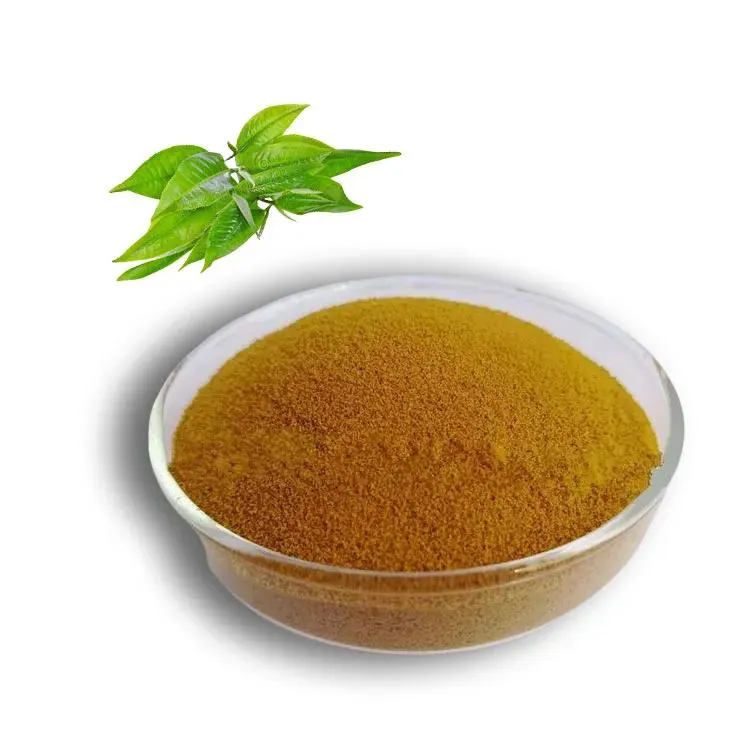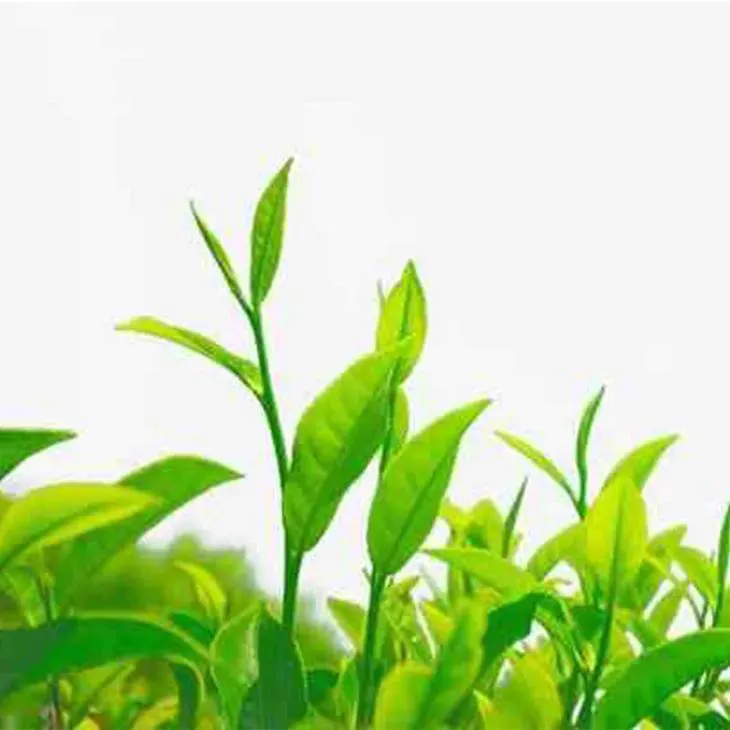- 0086-571-85302990
- sales@greenskybio.com
Green Tea Extract and Sleep: Can It Help You Rest Better?
2025-04-02

In recent years, the health benefits of green tea have been extensively explored, establishing it as more than just a soothing beverage. Green Tea Extract, a concentrated form of the tea, offers numerous potential health benefits, including antioxidant effects, weight loss support, and cognitive enhancement. However, among the array of its purported benefits, there is increasing curiosity about its impact on sleep quality. As sleep health becomes a focal point in discussions about wellness, it's worth investigating: does Green Tea Extract help you sleep?
Understanding Green Tea Extract
Green tea extract is derived from the leaves of the Camellia sinensis plant, the same plant that produces regular green tea. The extract is rich in polyphenolic compounds, particularly catechins like epigallocatechin gallate (EGCG), which are credited with most of its health benefits. While green tea itself contains caffeine, green tea extract can be formulated either to include or exclude caffeine, impacting its overall influence on sleep.

The Components of Green Tea Extract
1. L-Theanine: This unique amino acid, found almost exclusively in tea plants, is known to promote relaxation without sedation. L-theanine is believed to work synergistically with caffeine to enhance focus and attention while mitigating caffeine's jittery effects. It increases the production of alpha waves in the brain, leading to a state of relaxed alertness that may facilitate improved sleep quality.
2. Catechins: These are powerful antioxidants, with EGCG being the most abundant and effective. Catechins have been associated with a variety of health benefits, though they are not directly linked to sleep promotion. Their antioxidant properties contribute to anti-inflammatory effects, which might help indirectly in creating a conducive environment for better sleep.
3. Caffeine: While a stimulant that can hinder sleep, in green tea, the caffeine content is considerably lower compared to coffee. However, even this modest amount can affect sensitive individuals, making it critical to choose decaffeinated versions of the extract for those with sleep difficulties.

L-Theanine: The Key Sleep Component
The most important compound in green tea extract related to sleep is undoubtedly L-theanine. Studies suggest that L-theanine can enhance the quality of sleep by promoting relaxation and reducing stress levels. Its calming effects may enhance sleep duration and quality, particularly in individuals experiencing high levels of stress or anxiety.
In a study published in the journal Alternative Medicine Review, researchers found that L-theanine administration resulted in improved sleep efficiency and quality. Another study in the Journal of Clinical Psychology highlighted its ability to mitigate stress-related anxiety, contributing to better sleep patterns.

Scientific Studies and Insights
While research specifically focusing on green tea extract as a sleep aid is limited, several studies assess the individual components, particularly L-theanine and its effects on sleep.
- A study conducted on young boys with ADHD indicated that L-theanine supplementation resulted in improved sleep quality, suggesting its potential benefit in managing sleep issues associated with hyperactivity.
- Another study involving human subjects highlighted that those who consumed a combination of L-theanine and GABA experienced significant improvements in sleep efficiency, latency, and duration compared to those who did not.
While these studies focus on L-theanine, their results provide a basis for understanding how green tea extract could indirectly contribute to better sleep quality.
Practical Considerations and Recommendations
For those considering green tea extract to improve sleep, there are several practical considerations:
1. Source and Quality: It's essential to choose a high-quality extract from a reputable source. Look for products that specify the amounts of L-theanine and caffeine and consider opting for decaffeinated versions if caffeine affects your sleep.
2. Dosage: Follow recommended dosages carefully. Excessive intake of green tea extract can lead to unwanted side effects, including digestive issues or, ironically, insomnia due to overstimulation if caffeine is present.
3. Timing: If opting for a green tea extract containing caffeine, ensure it's consumed earlier in the day to avoid disrupting sleep patterns. The calming benefits of L-theanine can be reaped by taking the extract in the evening, provided it is caffeine-free.
4. Individual Differences: The effectiveness can vary based on individual physiology, lifestyle, and existing health conditions. Those with chronic sleep disorders should consult a healthcare professional before adding green tea extract to their regimen.
Conclusion
Green tea extract, primarily through its L-theanine content, holds potential as a supportive agent for improving sleep quality in certain individuals. While more focused research is needed to establish definitive use guidelines and effectiveness, existing studies suggest promising benefits, particularly in stress reduction and relaxation, contributing to better sleep.
As part of a holistic approach to sleep health, incorporating green tea extract with other sleep-promoting practices, such as maintaining a sleep schedule, optimizing sleep environment, and moderating screen time, could yield notable benefits. As always, individuals should consult with healthcare professionals, especially when considering new supplements, to ensure they align with personal health needs and conditions.
In summary, while green tea extract may not be a standalone solution for sleep issues, it can be a valuable component of a broader strategy aimed at enhancing overall sleep quality and wellbeing.
- ▶ Hesperidin
- ▶ citrus bioflavonoids
- ▶ plant extract
- ▶ lycopene
- ▶ Diosmin
- ▶ Grape seed extract
- ▶ Sea buckthorn Juice Powder
- ▶ Beetroot powder
- ▶ Hops Extract
- ▶ Artichoke Extract
- ▶ Reishi mushroom extract
- ▶ Astaxanthin
- ▶ Green Tea Extract
- ▶ Curcumin Extract
- ▶ Horse Chestnut Extract
- ▶ Other Problems
- ▶ Boswellia Serrata Extract
- ▶ Resveratrol Extract
- ▶ Marigold Extract
- ▶ Grape Leaf Extract
- ▶ blog3
- ▶ blog4
- ▶ blog5
-
Is Green Tea Good for Your Kidneys?
2025-04-02
-
Who Shouldn’t Take Green Tea Extract?
2025-04-02
-
What Is the Best Green Tea Extract?
2025-04-02
-
Is Green Tea Extract Anti-Inflammatory?
2025-04-02
-
What Is Green Tea Extract For?
2025-04-02
-
Artichoke Extract
2025-04-02
-
Lemon Extract
2025-04-02
-
Camu Camu Extract
2025-04-02
-
Marigold Extract
2025-04-02
-
Black Rice Extract
2025-04-02
-
Elderberry Extract
2025-04-02
-
Okra Extract
2025-04-02
-
Pomegranate Extract
2025-04-02
-
Scutellaria Extract
2025-04-02
-
Buckthorn bark extract
2025-04-02






























